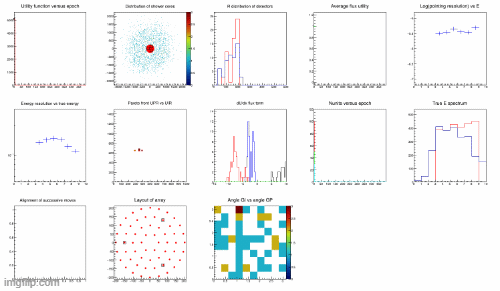Every two years particle physicists meet at a conference which is just a bit more important, more well-attended, and more prestigious than all the others that pester our agendas every other week. This conference is called ICHEP - the International Conference on High-Energy Physics - and it is usually the favourite and most favourable place where to present or to listen to groundbreaking results, important advancements, thorough review talks.
Courtesy
gizmodo:

The typo we had been all waiting for. And there is already who fantasizes about the need for a Large Hardon Condom, to play it safe...
Sorry for the reblogging, but this time I did not resist...
Two years ago I
discussed the results of a very interesting search performed by the CDF experiment in its dataset of 2-TeV proton-antiproton collisions, provided by the Tevatron accelerator at Fermilab.
The search focused on the hypothesis that a massive fourth-generation quark was produced in the collisions. What was assumed was that the quark was heavy -otherwise previous searches would have found it already-, and that it behaved similarly to the sixth quark, the top, which is by now a well-known animal of the particle zoo.
The matter has indeed been discussed ad nauseam in the recent past. Blog posts, internal discussions, conferences, workshops, other blog posts, threads. But there is always the chance to add some bit of information to the soup, or -more easily- misinformation. In this case, the discussion invests mostly italian blogs, so I figured I would give you a summary here.
I cannot but be happy about the decision of the Australian government led by Kevin Rudd to further tighten the moral suasion against smoking. They decided that starting in 2012, the name of the brand of cigarettes and other logos will be moved away from the front of the pack, making all the packs of cigarettes look equal in their appearance: the one of the picture below. On the left how packs look like now, on the right the new look.

"The basic goal for CDF is to measure the energy, momentum, and, where possible, the identity, of particles produced at the Tevatron collider over as large a fraction of the solid angle as practical. Our strategy to accomplish this was to surround the interaction region with layers of different detector components. Starting at the interaction point, particles encounter in sequence: a thin wall Be vacuum chamber, charged particle tracking chambers, sampling calorimeters, and muon detectors."
F. Abe et al., The CDF Detector: an Overview, NIM A271 (1988) 387.
 Conferences Good And Bad, In A Profit-Driven Society
Conferences Good And Bad, In A Profit-Driven Society USERN: 10 Years Of Non-Profit Action Supporting Science Education And Research
USERN: 10 Years Of Non-Profit Action Supporting Science Education And Research Baby Steps In The Reinforcement Learning World
Baby Steps In The Reinforcement Learning World Restoring The Value Of Truth
Restoring The Value Of Truth










